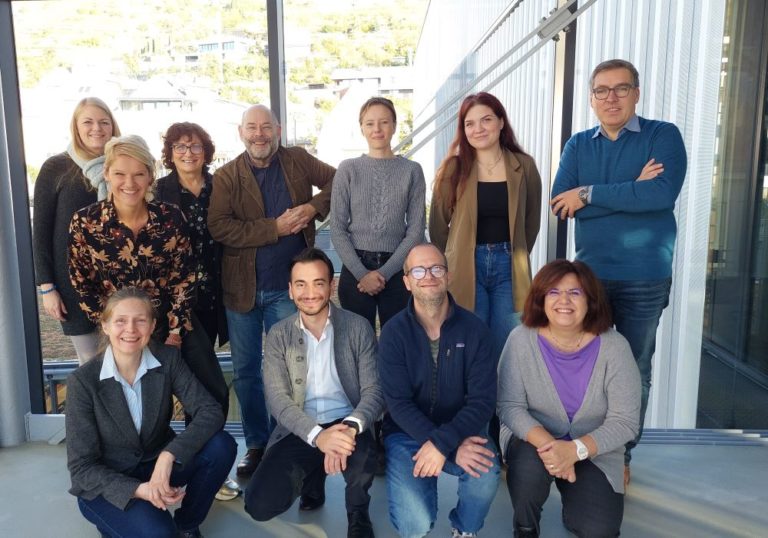Kick-off Meeting in Mannheim, Germany
The first partner meeting of the CGC-DigiTrans project (short: DigiTrans) took place on January 30 and 31, 2023 at the University of Applied Labour Studies (Hochschule der Bundesagentur für Arbeit, HdBA) in Mannheim.
The project continues the successful collaboration between the HdBA (Germany), the Universität für Weiterbildung Krems (Austria), the Università degli studi di Padova (Italy), the Saxion University of Applied Sciences (Netherlands) and the partner eMundus (Lithuania). The partners met in a hybrid format and exchanged information about the goals of the project and the work packages.
Prof. Dr. Andreas Frey, Rector of the HdBA, warmly welcomed the participants in the modern premises of the Teaching Library of the HdBA and welcomed the exchange of the partners on a European level. In his introductory speech, Prof. Dr. Frey also emphasized the importance of digitization for higher education and career guidance and counseling (CGC).
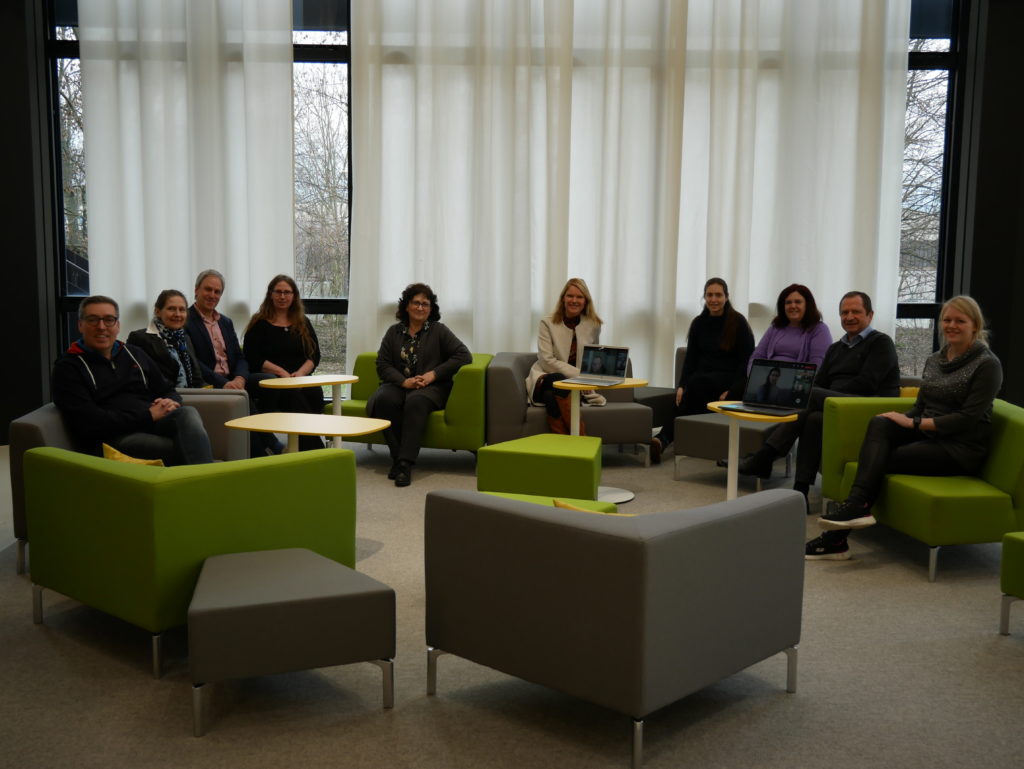
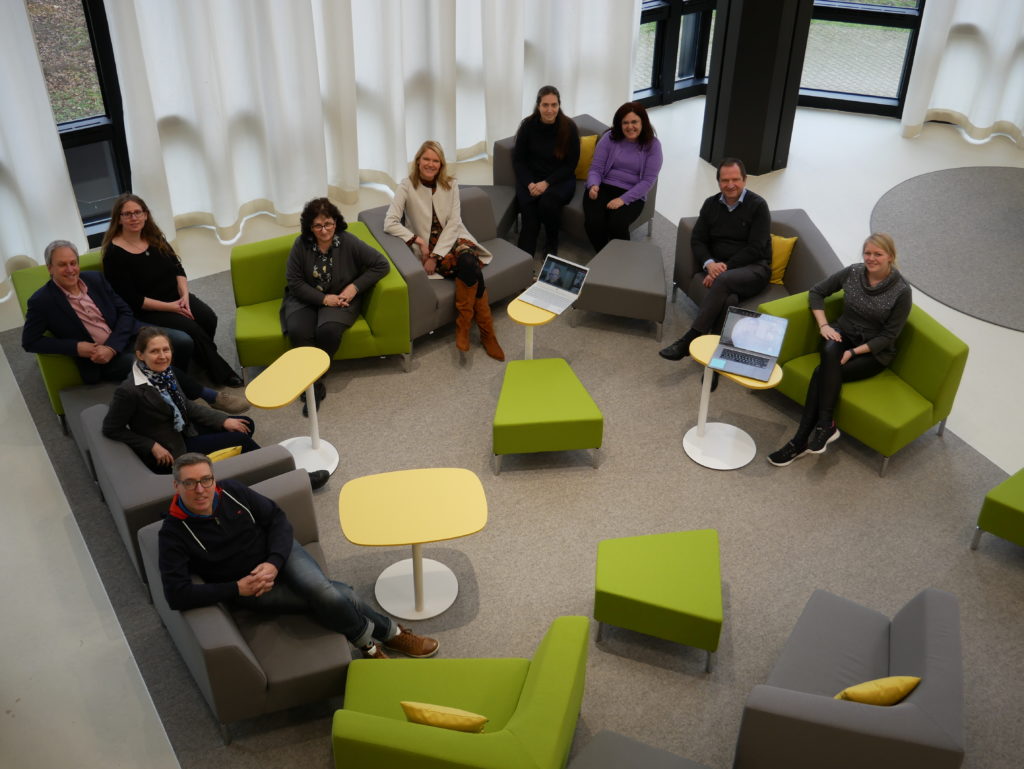
2nd Partners’ Meeting in Enschede, Netherlands
In July 2023, the second partner meeting took place at our partners at Saxion University of Applied Sciences in Enschede. We worked in different workshops on July 3rd and 4th, 2023.
In Enschede we worked intensively on our methodology “Roundabouts for digital transformation”. Like in a traffic circle, different stakeholders can gradually join the consultation process for the promotion of digital skills. Please find the agenda of the meeting here.
These are the results of the Enschede workshop:
- We wrote a precise description of the worker persona targeted by the counselling methodology.
- We have determined which building blocks our methodology should comprise.
- We have defined how our “Roundabouts Method” relates to other counselling theories.
- We have defined the different phases of our methodology.
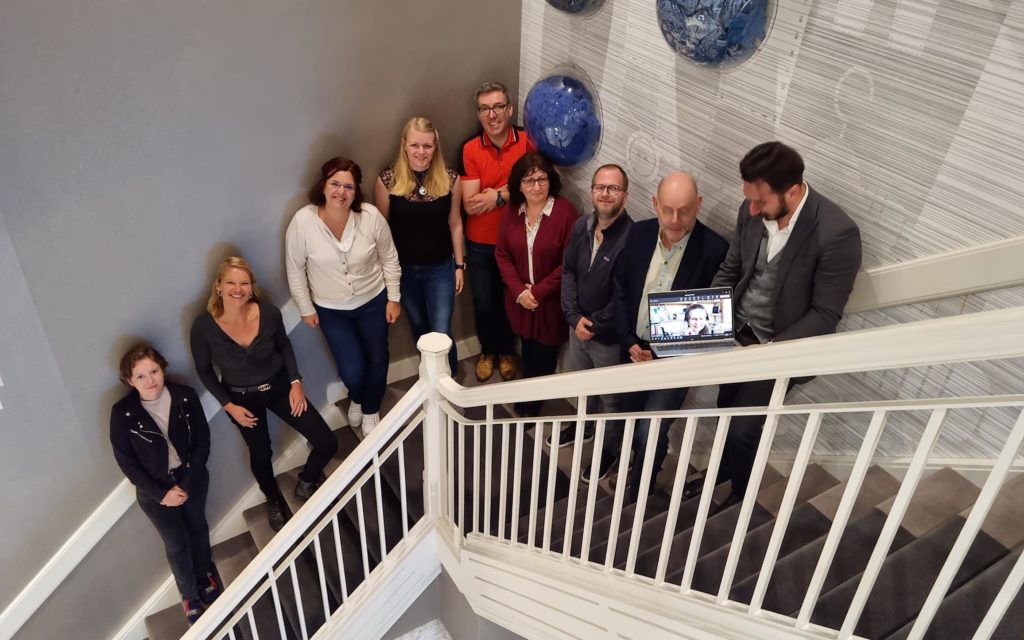
On 21 and 22 March 2024, we had a transnational partner meeting in Padua, Italy.
We used the time to discuss the results of the preparatory courses for learning the method. How has the method been received in the individual countries? What can we improve? How do we get the course “on track” as a self-study webinar?
Planning the piloting of the method also played a major role.
In the upcoming months, we will work with counsellors in the participating countries to find out how counselling in the network and the Roundabout method can be implemented. The collected case studies will form the basis for the study module that we will develop.
During the next steps we are going to invite most professional career counsellors in Austria, Italy, Germany and the Netherlands to co-create this method with us, using case studies.
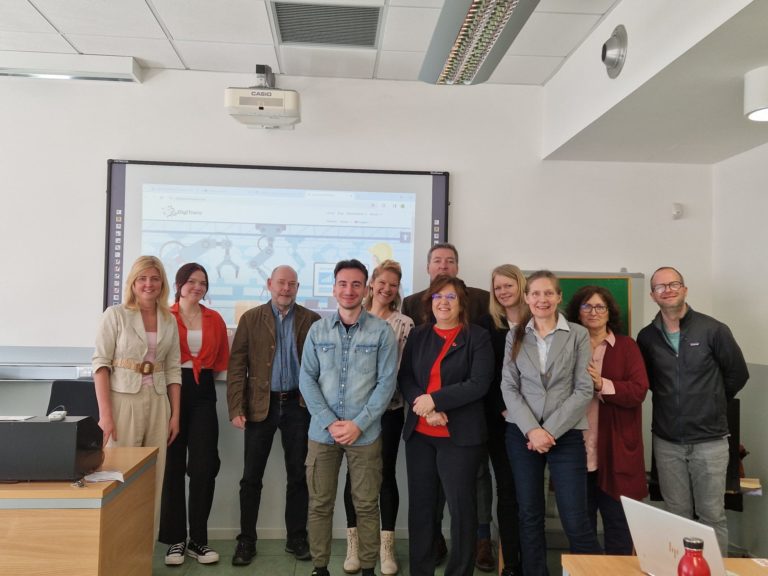
International Workshop and Meeting of DigiTrans project was held in Austria at the University for Continuing Education Krems on 17th–18th October 2024.
What did we discuss?:
👉 Roundabout Methodology piloting activities.
👉Case descriptions, challenges in evaluations process, podcast creation details.
👉Curriculum for Higher Education institutions teaching students the Roundabout method
The workshop was initiated by Martin Stark using Mural tool to structure curriculum – training program for career guidance counsellors. The DigiTrans project partners clarified topics of the modules, learning outcomes, duration, ECTS. Working in groups, partners brainstormed modules’ units and activities based on CGC-DigiTrans competence framework on digital skills, core concepts and phases of the multi-actor Roundabout Method and practical exercises as well as reflection activities for the transfer into local contexts.
We are very thankful for this successful meeting in Austria!
Please find project results that already are available at project website
📄 Report on Digital Skills and Glossary
📙 Handbook – A methodology “CGC Roundabouts for Digital Transformation”
